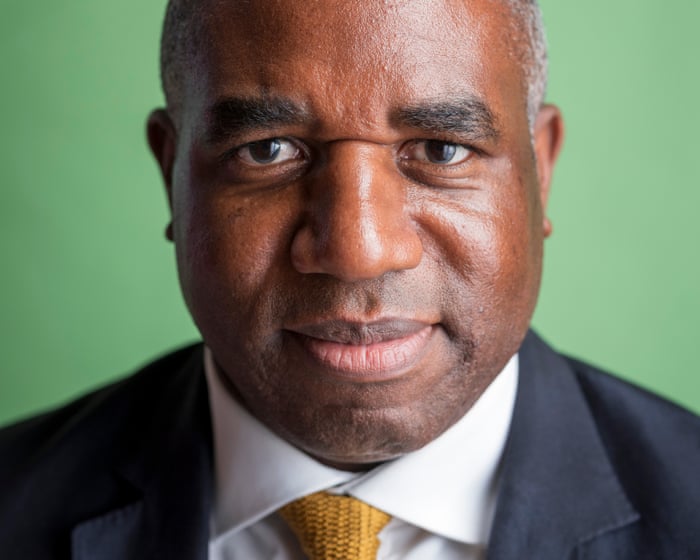A court in Dhaka has sentenced Bangladesh’s former prime minister, Sheikh Hasina, to death in absentia for crimes against humanity related to her government’s violent suppression of a student-led uprising last year. A panel of three judges at the international crimes tribunal found her guilty of inciting violence, ordering killings, and failing to prevent atrocities during the crackdown on anti-government protests.
Justice Golam Mortuza Mozumder announced that Hasina had committed crimes against humanity by authorizing the use of drones, helicopters, and lethal weapons against civilians. Hasina had denied the charges, calling the tribunal a politically motivated sham.
The trial, which lasted several months, proceeded without Hasina present. She fled to India last August and has been living there under protection, with India refusing to extradite her.
In the courtroom, families of protesters killed during the unrest wept as the death sentence was also handed to former home minister Asaduzzaman Khan, who was tried alongside Hasina. Hasina’s absence was notable, and in a post-verdict statement, she claimed she was denied a fair trial and had acted in good faith to restore order. She criticized the tribunal as illegitimate, set up by an unelected government without a democratic mandate.
Ahead of the verdict, Dhaka was tense, with heightened security and a surge in political violence, including bombings. Police issued shoot-on-sight orders for anyone involved in such acts. On the morning of the ruling, a bomb thrown near the court caused panic and road closures.
The protests that led to Hasina’s downfall started as a student movement and grew into a nationwide “July revolution” against her authoritarian rule. Her 15-year tenure was marked by allegations of corruption, torture, and enforced disappearances, documented by human rights groups and the UN. In response to the uprising, her government conducted a harsh crackdown, with security forces using live ammunition, resulting in an estimated 1,400 deaths—the worst political violence since Bangladesh’s independence in 1971.
The interim government, led by Nobel laureate Muhammad Yunus, who was appointed by protest leaders, made prosecuting Hasina a key promise. Chief prosecutor Mohammad Tajul Islam built the case for the tribunal. Hasina was tried with her former police chief, Chowdhury Abdullah al-Mamun, who pleaded guilty and testified against her. The judges noted that Mamun’s crimes warranted death but reduced his sentence due to his cooperation.
To ensure transparency, much of the trial was broadcast live.Prosecutors pointed to key incidents, including the death of Abu Sayyed, a university student who was shot at close range by police. His killing, caught on camera, became a rallying cry for the uprising.
Hasina was described by the prosecution as the “mastermind, conductor, and superior commander” of the atrocities in July and August. Recorded phone calls were used to directly link instructions from the prime minister’s office to the deadly street operations.
Using the international crimes tribunal to try Hasina drew criticism from human rights groups. The court was set up by Hasina herself, and opponents accused her of using it for politically motivated cases while in power. Human Rights Watch stated that, despite some improvements, the tribunal still did not meet fair-trial standards and could impose the death penalty.
The Yunus government rejected the criticism, saying the tribunal operated transparently, allowed observers, and regularly published documents.
For families of those killed in the uprising, the verdict against Hasina brought relief and closure. Golam Rahman, 55, lost his son Golam Nafis, who was shot on August 4 during the peak of the unrest.
Rahman said the death sentence for Hasina was “the only acceptable verdict for what was done to my child. We buried a boy, not an enemy of the state. Nothing will bring him back, but the truth had to be spoken in court.”
A widely shared photo of Nafis lying in a pedal rickshaw as the driver rushed him to the hospital has been circulated online and painted as graffiti across Dhaka.
“We, the families of the uprising’s martyrs, want to see her hanged as a warning to future rulers,” Rahman said. “Let no government think it can shoot children and get away with it.”
Bangladesh’s first election since Hasina’s fall is scheduled for early February. Her Awami League party has been barred from participating, and though most of its leaders are jailed or in hiding abroad, the party has vowed to cause widespread unrest in response.
Hasina’s son, Sajeeb Wazed, told Reuters that while his mother would remain “safe” in Delhi after the verdict, she would not stay quiet. “She’s upset, angry, outraged,” he said. “And we are all determined to fight back by any means necessary.”
Frequently Asked Questions
Of course Here is a list of FAQs about the topic designed to be clear concise and informative
BeginnerLevel Questions
1 Who is Sheikh Hasina
Sheikh Hasina is the current Prime Minister of Bangladesh and the President of the Awami League a major political party She is the daughter of Sheikh Mujibur Rahman the founding father of Bangladesh
2 Is it true that Sheikh Hasina was sentenced to death
No this is not true As of the latest and verified information Sheikh Hasina has not been sentenced to death This is a false claim that circulates online often as misinformation or political propaganda
3 What is the International Crimes Tribunal I keep hearing about
The International Crimes Tribunal is a domestic court established in Bangladesh in 2010 Its purpose is to investigate and prosecute individuals for genocide war crimes and crimes against humanity committed during the 1971 Bangladesh Liberation War
4 Was Sheikh Hasina ever tried by this tribunal
No Sheikh Hasina was not a defendant in the International Crimes Tribunal The trials focused on individuals primarily from the opposition party JamaateIslami and others accused of collaborating with the Pakistani army during the 1971 war
Advanced Contextual Questions
5 If she wasnt sentenced to death where does this rumor come from
This rumor is a persistent piece of misinformation It likely originates from a combination of
Political Motives Opponents may spread false news to damage her reputation and create instability
Misinterpretation People may confuse her with other political figures who were actually tried by the ICT
Deliberate Disinformation Fake news websites and social media bots often amplify such false claims to sow confusion
6 Has Sheikh Hasina faced any other significant legal challenges
Yes but not related to crimes against humanity In the past she has faced various charges including corruption which she and her supporters have claimed were politically motivated especially during periods when her party was not in power
7 What are crimes against humanity in a legal sense
Crimes against humanity are specific serious offenses committed as part of a widespread or systematic attack against any civilian population They include acts like murder extermination enslavement torture and persecution on political



